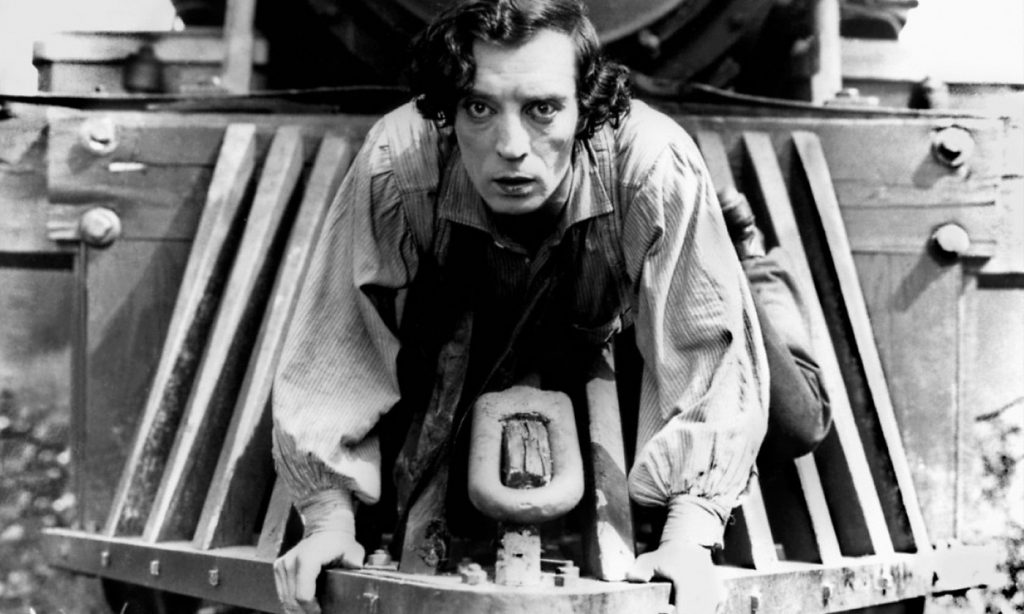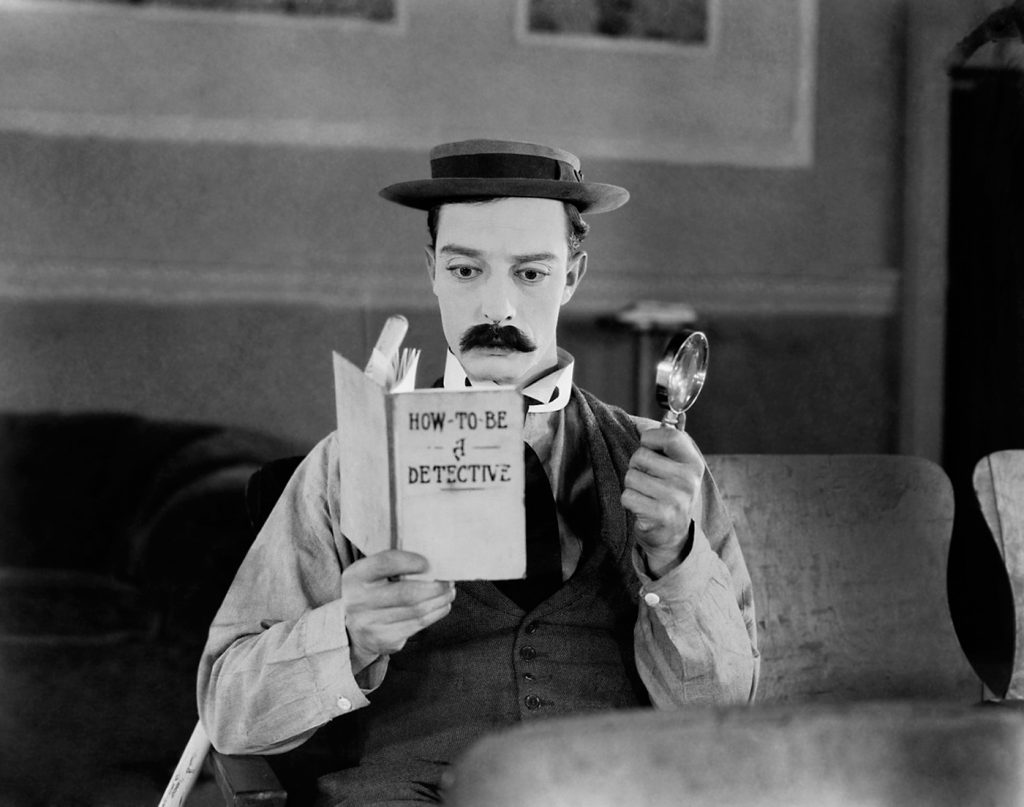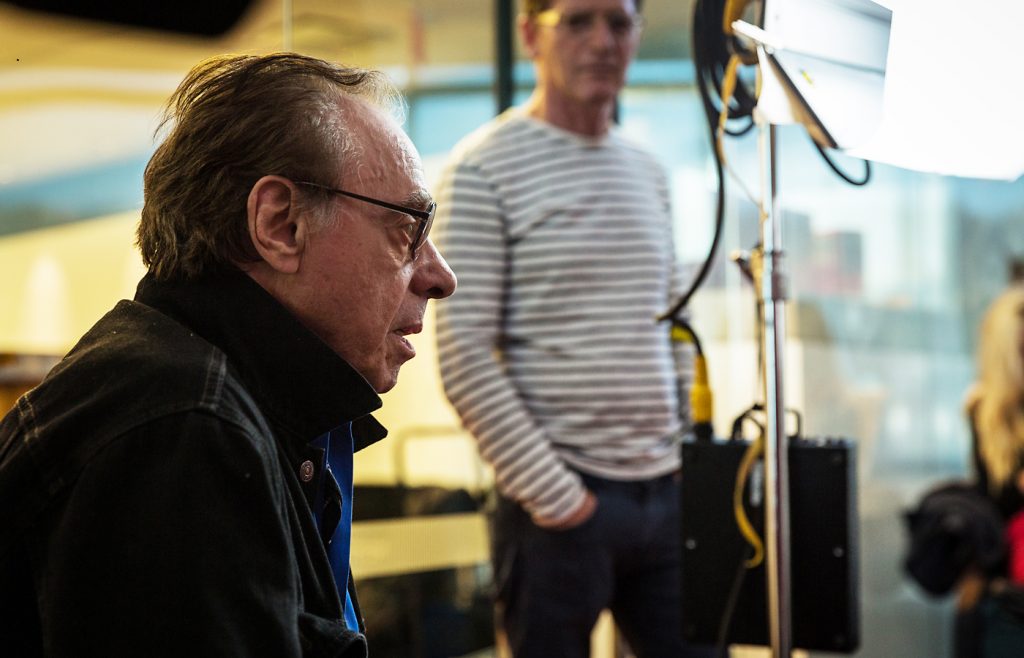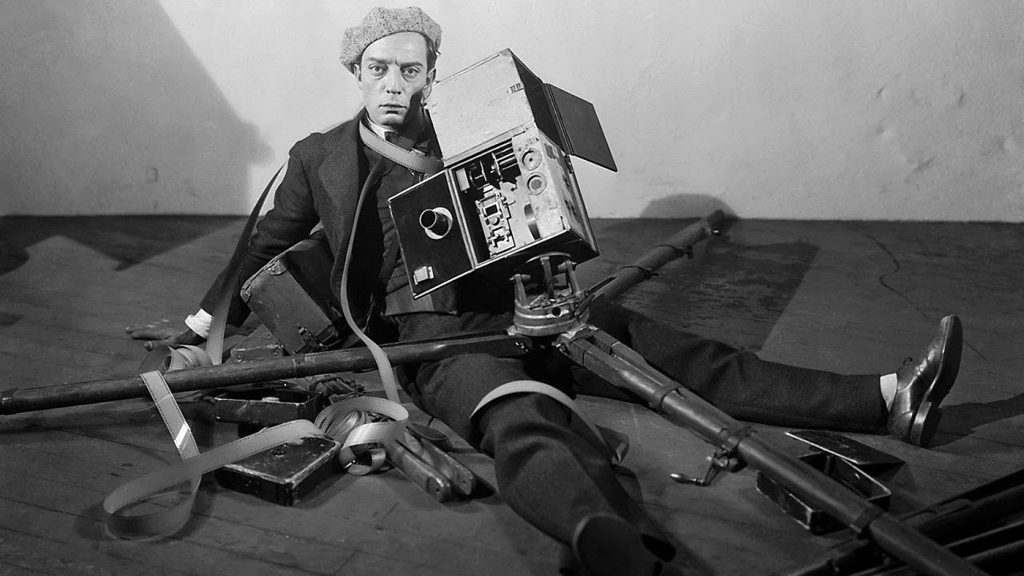
As a writer, director, producer, actor, comedian, and stunt performer extraordinaire, the indestructible Buster Keaton was like a one-man studio in the days of silent film. The Great Buster demonstrates his mastery of physical comedy, which stretched the imagination of what the human body could perform.
And he did it all with ease, grace, and hilarity. Keaton’s pranks, gags, and choreographed maneuvers were exceptional, if not breathtaking. His body seemed as pliable as rubber. And he was fearless. He never ran out of creative ideas, for which he invented his own props and mechanical effects. No stunt was too daring if it made the audience laugh.
This documentary is an exhibition of Keaton’s many talents, any one of which would be considered superlative. But Keaton also had the stamina of five people. He was a cinematic superman that no one will ever top. His feature films and shorts, along with his talents and ingenuity, continue to inspire generations of filmmakers and comedians. And his ability to harness the power of silence leaves a lasting legacy.

It all began in Kansas around 1899, when four-year-old Joseph Frank Keaton wandered on stage during his parents’ vaudeville show. The audience’s laughter transformed their act into the Three Keatons. And a star was born.

Released in October 2018 and now on DVD, this documentary was created and narrated by filmmaker and historian Peter Bogdanovich. And it features commentaries from show business icons like Mel Brooks, Dick Van Dyke, Bill Hader, and Quentin Tarantino. The Great Buster is a window into the history of film and comedy, where we sample the highlights of one of its greatest pioneers. You won’t believe your eyes. Rating: A

Buster Keaton has had a lasting influence on movies. Here, fellow directors and actors praise his talents:
Dick Van Dyke: “I stole as many moves as I could from him. Buster said, ‘You hit the ground with your hand as you’re going down and it absorbs some of the impact.’ And it works! Like a ballet dancer, he had incredible control of his body.”
Johnny Knoxville: “It’s amazing how timeless he is and how his kind of physical comedy will never be unfunny. It was funny then, it’s funny now, it will be funny in a hundred years. How many filmmakers can you say that about?”
Werner Herzog: “In a way, Buster Keaton is the essence of movies. He is one of the inventors of cinema.”
Quentin Tarantino: “One of the things that always bugged me about comedians when I was a little boy is the fact that they always had to be weaker than the other males. They had to be infantile or cowards or idiots. Why can’t they be male and masculine? And Buster Keaton was that. And he would always put himself against guys that were taller than him! He was a real exciting hero.”
Carl Reiner: “He was born to be a silent movie comedian because his non-expressive face expressed a whole bunch.”
Mel Brooks: “I think a lot of my daring in terms of breaking the fourth wall came from Keaton. Like in Sherlock, Jr. when he pointed out ‘We’re making a movie.’ I’m always pointing out somewhere in my films that we’re making a movie. And amazing stunts that nobody would ever dare. He either has no fear or he’s crazy.”
Bill Hader: “The influence he had on me was that he could do all these insane stunts and crazy things with his body, but at the same time he was never really pushing it.”
Richard Lewis: “I was taken by his cinematic artistry—I said, ‘This is the first time anybody’s tried this.’”
Jon Watts: “[For Spider-Man], Keaton was a very clear influence. Here I have this character who has almost no expression in his face, but there’s so much personality you have to create, and humor and physicality. So I just went back and watched a bunch of Buster Keaton films. I used that as a baseline for so many Spider-Man moments.”
Nick Kroll: “There are a lot of amazing things about his filmmaking, but more than anything for me, the idea that he’d be in these really heightened comic scenarios played incredibly seriously. It heightens not only the humor, but also the stakes of every scene he’s playing.”
French Stewart: “It just struck me that this man could do all these things without saying a word or without moving his face and you knew exactly what the story was.”
